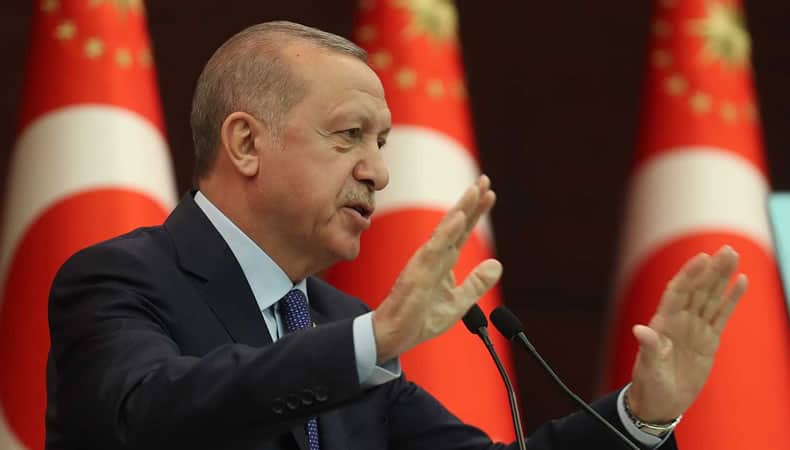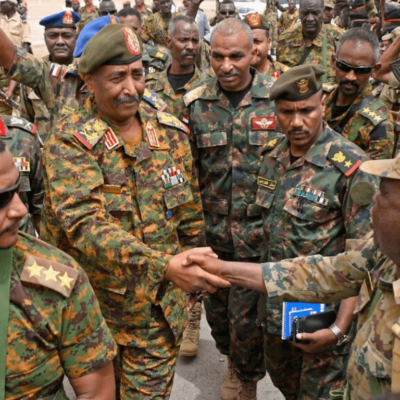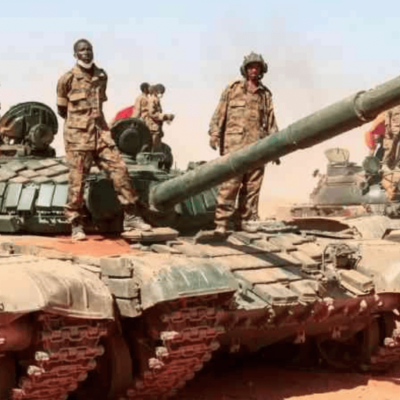Enemy or friends,terrorists or rebels? Who are the Syrians fighting for Erdogan?

In addition to protecting their sources, a journalist has a duty not to get too attached to them. Staying disengaged and adopting a less emotional attitude should help to better understand dynamics and the facts. However, sometimes that can be difficult, and sometimes, virtual connections are born, entering everyday life. Working as a journalist in North Africa and dealing with the Libyan crisis, I never thought I’d get attached to a Syrian.
Everything has been said about the Syrian rebels. Some label them as terrorists, who consider them more simply mercenaries to the strenuous of those Europeans or Americans who fought in Iraq, Iran, and Afghanistan in the 1990s and 2000s. Are really the Syrians fighting for Turkish President Recep Tayyip Erdogan jihadists? Generalizing is always wrong. In a civil conflict, as in Libya, as in Syria, we are not faced with a war between angels and demons. As a journalist I realized, unfortunately at my expense, that it is not possible to distinguish the parts between good and bad. No one iscompletely good orcompletlybad.
The vocabulary, under the heading mercenary reports: “In ancient times, and then from the end of the Middle Ages to the end of the 18th century, of soldiers who practiced the trade of arms placing themselves in the pay of those who recruited them temporarily, and of the armed corps that were formed with them. In modern times, a professional soldier who, for money, fights in the service of a foreign state, or even of political or economic groups.” The mercenary is a figure of the past.
It existed in the Middle Ages and the Renaissance, when there were still no nation states with their regular armies. It then disappeared to reappear in 1960, following the collapse of colonialism and the consequential birth of new states. In this new phase, mercenaries are normally tools of ex-colonial powers or large multinational corporations.
Ali, my Turkmen contact, says he arrived in Libya in early February this year. When he read the negative comments of the Libyans on Facebook, Ali was disappointed. Just as it bothered him that on Arab channels, or in my television streams, I painted the Syrian rebels as terrorists. And it is to him that I asked what name I should define them in my articles. “Do you prefer rebel, terrorist, jihadist, fighter or mercenary?”. I asked him, and his answer was icy: “Call me what you want, but we are only soldiers. We are part of the regular Turkish army, and we support the legitimate government of Libya.”
He is the first not to put up with his Syrian roommates. “I have no friends here. Their arguments are all so stupid and boring. All they do is talk about their victories in Syria against Assad. But in reality, we have lost that war, just as we will lose this one too.” He affirmed, telling that in Syria, he had fought against Daesh and not together. “Isis in Syria brought it from the West. They came from America, Europe, and Asia to live under the Sharia law.” When he talks about Turkey, one seems to hear Erdogan on TV. The same ideas of the Ottoman Empire, of the Turkish ancestors, and the same hatred for the West.
“We are different,” he told me only to discover that behind the Arab and European appearances, we are not so diverse, but someone made him believe otherwise. One day, he sent me a photo of a basilica built on piles of skulls. “We are the terrorists, look at this church in France made with Muslim skulls,” he said. But in reality, there is no church built with the skulls of beheaded Muslims, but it is the ossuary or catacombs de Paris. If it is true that Ali is a victim of propaganda and brainwashing of Islamist channels and Turkish training, it must be said that he was the one to choose. Millions of Syrians who oppose the Bashar al-Hassad regime continue to live their lives in other countries. He haschosen to fight.

However, it is easy for these fighters to end up in the networks of extremist groups, sometimes for money, or because they often find themselves fighting the same enemy. In Syria, as in Libya, we are witnessing the proliferation of heterogeneous armed groups, and among them, there are also extremists. Today, Ali spends his days in a military college on the outskirts of the Libyan capital Tripoli, waiting for his turn to go home. He denies reports suggesting that Syrians were transferred directly from Libya to Azerbaijan. “We are human beings, not war machines,” Ali asserts.
In the morning, he wakes up at dawn for military training, and in the late afternoon, trains again. Spends the rest of the time reciting the Quran, thinking about the future, and wondering if it was right to go to Libya. My Syrian enemy-friend is 22 years old, the war in Syria started when he was 14, and he begins to be tired of fighting conflicts that do not belong to him. In the photos, he smiles a little. “The smile has gone to Damascus, a long time ago,” told me once.
His story reminded me of a novel by the Italian Giovanni Verga, entitled Rosso Malpelo. The story tells of a boy who works in a red sand quarry. Embittered by prejudices that the local mentality attributes to those with red hair, he does not find affection even from his mother. Who does not trust him and suspects him of stealing money from the salary he brings to the family. Malpelo becomes more and more grumpy precisely because of the prejudices and epithets that the society in which he lived attributed to those with red hair.




